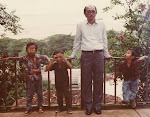| ||||||||||||||||||||||
For Israel, a gamble Gaza SDEROT, Israel — As helicopters flew overhead and artillery boomed from surrounding hills, Israeli troops pressed deep into Gaza on Sunday, opening a bloodier and much riskier phase to Israel's week-old offensive against the militant group Hamas. Israeli tanks and infantry occupied Gaza's main highway and set up positions around its biggest city, essentially cutting the crowded strip of Palestinian land in half. Undeterred, Hamas militants continued firing missiles into Israel, sending residents of southern cities such as Sderot scurrying for cover as air-raid sirens blared.
Despite reports of more than 500 deaths in Gaza, calls for a truce from around the world and potentially severe long-term damage to the Middle East peace process, there was no sign the fighting would end soon. "We're prepared for the long haul," said Capt. Elie Isaacson, an Israeli military spokesman in Sderot. The images of war in this part of the world — plumes of smoke rising above the Mediterranean Sea, helicopters dropping red flares, tanks rumbling past neatly planted orange groves — have become all too familiar during a tumultuous decade for Israel. Since peace talks fell apart in 2000, Israel has fought a war in Lebanon, dealt with a Palestinian uprising at home, faced a potential nuclear threat from Iran, and moved its troops out of Gaza, and now back in, to try to ensure the safety of Israeli citizens. This war poses a unique gamble, though, for Israel and its main ally, the United States. If it succeeds, Israel could significantly reduce the threat from Hamas, a radical Islamic group that is dedicated to destroying Israel and has terrorized the Jewish state for years with missiles and suicide bombers. A clear victory by Israel also might strengthen the hand of more moderate Palestinian leaders who were beaten by Hamas in parliamentary elections in 2006 and then entirely ousted from Gaza in an armed revolt the next year. If Israel fails, its cherished reputation of military power — already tarnished by the 2006 stalemate against Hezbollah in Lebanon — could suffer another blow while enhancing the prestige of Hamas in the Arab world, said Aaron David Miller, a public policy scholar at the Woodrow Wilson International Center in Washington, D.C., and an adviser to six secretaries of State on Arab-Israeli negotiations. "The stakes are enormous," Miller said — not only for Israel, but potentially for President-elect Barack Obama, who takes office in two weeks. Obama is "going to inherit a crisis that will not be resolved quickly," Miller said. "That's the worst kind of crisis for a new president. If it's not resolved, he'll appear weak and marginal." So far, Israeli forces have avoided the most crowded areas of Gaza, where about 1.4 million people are packed into an area roughly twice the size of Washington, D.C. Hamas militants used small arms and mortars, but Israeli soldiers have not encountered the deadly anti-tank weapons and other tactics that forced a stalemate with Hezbollah, another fundamentalist Islamic group, in Lebanon. Fighting could intensify if Israeli soldiers move into Gaza's densely populated towns and cities in coming days. "Fighting in an urban area is very difficult," said Israeli Foreign Ministry spokesman Yoel Mester. "The (Israeli military) trained knowing this was forthcoming." The mood was defiant in Sderot, just a mile from the Gaza border, despite hundreds of rocket attacks during the past week that have killed four Israelis across the country. "I'm used to it," said David Cohen, 38, who runs a convenience store and says he ducks under the counter when air-raid alarms go off. Indeed, seconds after the alarm sounded, an explosion sounded in the distance — and almost instantly, the streets returned to normal. People crowded back into a falafel shop to finish their lunches or went back to shopping. Children were out on the streets because schools have been closed, though officials have banned any large gatherings to reduce the risk of casualties. Toll rises in Gaza Meanwhile, conditions in Gaza are deteriorating. Since the ground assault began late Saturday, 64 Palestinian civilians have been killed, Moaiya Hassanain, a Gaza Health Ministry official, told the Associated Press. The latest deaths brought the death toll in the Gaza Strip to more than 512 since Dec. 27, the AP reported. Israel's government has refused to allow foreign journalists into Gaza since the war began, so it was not possible for a USA TODAY reporter to verify the destruction firsthand. Poor to begin with, the region has been the target of economic sanctions ever since Hamas, which has about 20,000 gunmen in its ranks according to Israel, won Palestinian legislative elections in 2006. Relentless bombing in the past week has knocked out most power and hospitals are running out of room. Ashraf al-Masri, a 35-year-old taxi driver in Gaza reached on his cellphone, said Israeli troops are "shooting at anything that moves." "There's no electricity. There's no water. There's fear," said al-Masri, who lives in Beit Hanoun, a town in northern Gaza. "What have we done to deserve this?" Lubna Karam, 28, said she and the other nine members of her family spent the night huddled in the hallway of their Gaza City home. The windows of the house were blown out days earlier in an Israeli airstrike, and the family has been without electricity for a week, surviving without heat and eating cold food. "We keep hearing the sounds of airplanes and we don't know if we'll live until tomorrow or not," she told the AP. Gaza health officials said the dead included a 12-year-old girl, five members of a single family, eight civilians killed by a tank shell in the northern Gaza town of Beit Lahiya and an ambulance driver. Palestinians reported clashes early today in eastern Gaza near the border with Israel. Explosions could be heard in Gaza City as aircraft attacked buildings. The violence prompted a renewed outcry from world leaders, including United Nations Secretary-General Ban Ki Moon, who called for an "immediate end" to the operation. In Turkey, more than 5,000 people held a rally in Istanbul where they burned effigies of Israeli Prime Minister Ehud Olmert and President Bush. However, in New York, the United States blocked approval of a U.N. statement calling for an immediate cease-fire in the Gaza conflict. The White House has said that a cease-fire should take place as soon as possible but that it must guarantee an end to Hamas rocket strikes. Obama, who has stressed that Bush is in charge until the inauguration of the new president Jan. 20, has not commented publicly on the Gaza crisis since the fighting began. During a visit to Sderot in July, though, he supported Israel's right to defend itself against rocket attacks. Choking Hamas' supply lines By cutting the region in half, Israel is trying to choke off Hamas' supply lines, which run from its southern border with Egypt, making it difficult for Hamas to supply its fighters with weapons, food and other support. Israel also has targeted tunnels under the Egyptian border that Israel says were used for weapons smuggling. Hamas had been launching up to 200 rockets per day on Israeli towns, according to the Israeli Defense Forces. Hamas militants have continued to fire missiles since the offensive began, but much less frequently. On Sunday, 40 rockets were fired into Israel, said Maj. Avital Leibovich, a spokeswoman for Israel's military. Israel has said the range of Hamas' rockets has increased dramatically over recent years, in part because of help from Iran. Hamas had been firing Kassam rockets, which largely were improvised weapons with a range of about 7 kilometers. More recently, Hamas began firing Grad rockets with a range up to 40 kilometers, putting more Israeli towns within striking distance, Leibovich said. "We know Iran is actively supporting Hamas financially and otherwise," said Yehuda Yaakov, an Israeli Foreign Ministry official. Israel's military said Sunday one of its soldiers had been killed and more than 30 injured since the start of the ground offensive. The military said dozens of Hamas militants, including key leaders, had been killed. "We see signs of Hamas beginning to weaken," Leibovich said. Israel maintains that its goal in launching the offensive is limited to stopping the rocket attacks. "The main goal … is to minimize or cripple their ability to launch rockets," Leibovich said. However, some Israeli officials have expressed hopes that the offensive will lead to a fatal weakening of Hamas — or at least prompt the organization's political wing to moderate its positions. Israel has said it has no intention of reoccupying Gaza, from which it withdrew in 2005 following nearly four decades of Israeli control. "Regime change is not a stated goal," said Mester of Israel's Foreign Ministry. But "no one will shed too many tears if this eventually happens." A resounding defeat of Hamas could lead to a takeover of Gaza by leaders loyal to Palestinian President Mahmoud Abbas. His more moderate faction has been a more cooperative partner in the Middle East peace process. Ephraim Sneh, a former Israeli Defense Minister who now heads a small political party, said such an outcome would be welcome. "We should achieve a strategic goal," he says. "Not a tactical goal." The challenge for Israel However, Steven Cook, a Middle East specialist at the Council on Foreign Relations, says the Israeli offensive is unlikely to drive a wedge between Hamas and its supporters in Gaza. Traditionally, Palestinians have rallied around any forces willing to face off against Israel, regardless of the outcome. And Palestinians in Gaza won't blame their own leaders for the attack or the grim conditions under which they are living, Cook said. "That's not the way the dynamics of Palestinian politics works," he said. "They're not going to blame Hamas." Israel also could risk losing tacit support from Egypt — a key Arab voice for peace in the region — if civilian casualties start to mount. Images of the violence in Gaza broadcast throughout the Islamic world already have set off demonstrations in relatively moderate countries such as Morocco. Haim Malka, deputy director of the Middle East Program at the Center for Strategic and International Studies, said Hamas also benefits from lower expectations because many in the region perceive the war as a David versus Goliath scenario. "If Hamas continues to exist, Hamas has been successful," Malka said. Even if Hamas emerges military weakened from the conflict, Cook said, the resulting political vacuum would lead to more chaos and violence in the region. "It's very hard to make an argument that the Israelis are going to be better off." Contributing: Daniel Estrin, Tom Vanden Brook in McLean, Va., the Associated Press Copyright 2009 The Associated Press. All rights reserved. This material may not be published, broadcast, rewritten or redistributed. (This news from Al Yaum, Saudi Arabia, 5 January 2009) | ||||||||||||||||||||||
Monday, January 5, 2009
HAMAS
Subscribe to:
Post Comments (Atom)











.jpg)



.jpg)





.jpg)
.jpg)
.jpg)
.jpg)
.jpg)
.jpg)
.jpg)












































No comments:
Post a Comment